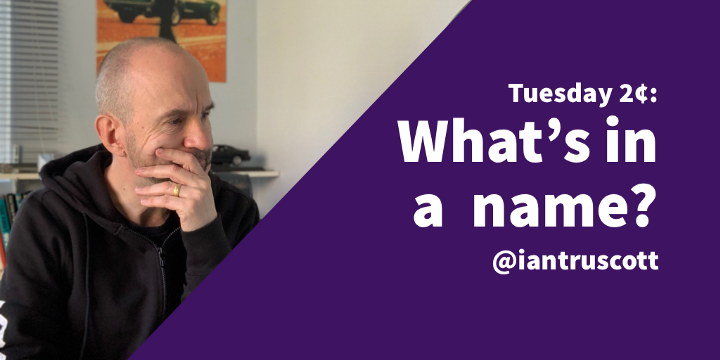This week my Tuesday 2 cents comes from having learned that long-standing content management (Oh.. OK Digital Experience) platform Episerver is changing its name to Optimizely.
Following it’s aquisition of Optimizely last year, Episerver, a content management vendor recognised by Gartner and Forrester as a leader has decided to rebrand as Optimizely.
Many analysts are better qualified and better connected to the company, its market, and its customers to comment than I am.
However, as someone who’s been in the industry for over 20 years (I was working in presales for one of the original leaders in this category 2 years before Episerver was first released as a product), it’s sad to see a familiar name fade.
But that’s not what this post is about, I’m not here to judge this decision. I’ve experienced acquisitions many times in my career, I’ve been in companies that have been acquired and been the acquirer, and I thought I’d share 2 cents on that.
In these experiences, I’ve seen this handled differently.
Do you immediately assimilate the acquired company in the interest of corporate cohesion and a nice tidy marketing message? Or maintain separate entities until such time it’s appropriate to make the change?
It’s a complex decision to integrate people and create a single culture internally as it is about how you externally project the brand. How quickly do you bring together the brand and its people?
I once heard executives of a company I worked for, an acquisition target for SAP, describing our potential assimilation as a reverse take-over. In that, we would continue with our identity and culture, and this would influence SAP.
The transaction never happened, but can you imagine the difficulty of creating a cohesive culture if the acquired group sees themselves as different and don’t want to identify with the new culture and brand?
I actually don’t need to imagine.
I’ve seen it many times, on both sides. Once working for an acquired company, I embraced my new management team, company, and brand. Meanwhile, the old boss, the CEO of our acquired company, suggested some disloyalty in me doing that.
And I’ve been at the acquirer, where you wonder if that’s the advice given to your new colleagues, as the culture turns to a toxic them and us.
These uneasy acquisitions are easy to spot, an anomaly on the website with the old brand hanging around, disjointed messaging, people keeping job titles that reflect their old brand, and a fractured buying process.
Why does this happen?
The arbiter of the decision to come together slowly, that you often hear, is “brand equity”.
The acquired, keen not to lose their identity, play this card, believing that they should remain distinct and different, as their acquired brand has some value.
More than that, they as people are different and continue to rally around their flag, disrupting corporate attempts to bring them into the fold playing on a fear that some acquired value will be lost.
Well, from the CEO’s perspective, you’d be foolish to throw away that brand equity, lose some ethereal, intangible value, to break this expensive but seemingly delicate new toy that you’ve just purchased, right?
I’m not deriding brand equity.
We know, a brand is not something we can control; a brand is how someone else feels about you a collection of experiences and memories of your company. And it’s not easy to transfer those feelings. It’s also the brand’s power, how people feel about working for that brand, that plays in this. It’s not about balance sheet dollars and cents.
So, the answer is not easy, and it’s absolutely something to be considered and planned for as part of an acquisition.
Back to the example Episerver and Optimizely. For me, the brand equity of Episerver is a promise of a well priced, straightforward enterprise web content management solution that seemed pretty straight up, avoiding a lot of the BS, staffed with people that have a passion for the industry and I’ve met delighted customers.
Also, to steal an analogy from industry analyst Tony Byrne; in the martech mall, I see content management as one of the anchor stores, along with the discipline of managing customer data. Optimizely, in my brand perception, is well, a more specialist store, slightly off the main avenue. An add-on to a martech stack.
But those are my feelings, built over more years than I care to admit, and adopting the Optimizely brand could be a smart move to embrace the tribe that sees Optimizely as the cool kid. Returning to the mall analogy, more Urban Outfitters than J C Penny.
I don’t know.
Anyway, that wasn’t my point, I wish my chums at Episerver all the very best.
It just reminded me, there’s quite a lot in a name…
This article was originally published on Medium.
Fancy more of this?
Subscribe to my Rockstar CMO Newsletter

I’m a 3xCMO, now a marketing strategy advisor and podcast host at Rockstar CMO. Although, I’m not a rock star, but a marketing leader, strategist, content marketer, columnist, speaker, industry watcher, and creator of ART (Awareness, Revenue, and Trust) for the companies I work with. But most of all, I am an enthusiastic tea drinker.
You can find me on LinkedIn, Twitter, or now Threads! – or listen to my weekly podcast at Rockstarcmo.com
The half-baked thoughts shared on this blog may not reflect those of my employer or clients, and if the topic of this article is interesting or you just want to say hello please get in touch.
